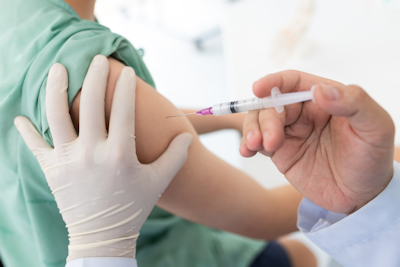Now that the Covid vaccine rollout is in full swing, changes to our behaviour are starting to emerge. A new working paper from the University of Cambridge shows how these changes are impacting how many people act in public.

“Now that the rollout of vaccinations across many nations is well underway, our research has found that many people are starting to change the way they behave,” says Dr Flavio Toxvaerd. “Initially, many people were focussed on the benefit from the inoculation, but that has had a significant change in how people behave in public when it comes to the Covid ‘norms’ we are now used to.”
The research suggests there are many changes to how people behave, after they have received the Covid-19 vaccine.
In The Great COVID-19 Vaccine Rollout: Behavioral and Policy Responses Dr Flavio Toxvaerd from the University of Cambridge, and Christopher Auld from the University of Victoria find, after the vaccine rollout in high income countries such as the UK and Australia, there is a decrease in average social distancing, particularly so for visits to retail establishments.
“This isn’t surprising,” says Dr Toxvaerd. “After all, once someone has had the vaccine they may be far less worried about catching Covid, and hence if they go out shopping, they just stop caring so much, and hence will stop maintaining a distance with other shoppers – even if the other shoppers haven’t had the vaccine yet.”

However, Dr Toxvaerd adds, this might actually lead to a small increase in infections: “Our prior research suggests that counter-intuitively, it may actually make the impact, and the effects, of the pandemic worse in the short run.”
In countries with more stringent policies and tightly enforced rules, this effect isn’t so noticeable. “There is little evidence that vaccinations are more or less effective in changing behavior in these countries,” he says.
A curious effect is that the apparent effect of vaccinations begins to decline at the end of the sampling window from the beginning of February to late March; “Exactly why is unclear,” he says. “Indeed, we must have some caution: due to the nature of our data, our research cannot distinguish between the behavioral effects of vaccination on the vaccinated and the unvaccinated.”
Furthermore, there is no way of disentangling a decrease in social distancing in response to more rapid vaccine distribution resulting from altruistic or narrowly self–interested motives.
The paper concludes that countries which successfully vaccinated more quickly, such as the UK, experienced both less social distancing and diminished spread of disease as a result of these vaccinations.




0 Comments
please do not spam link